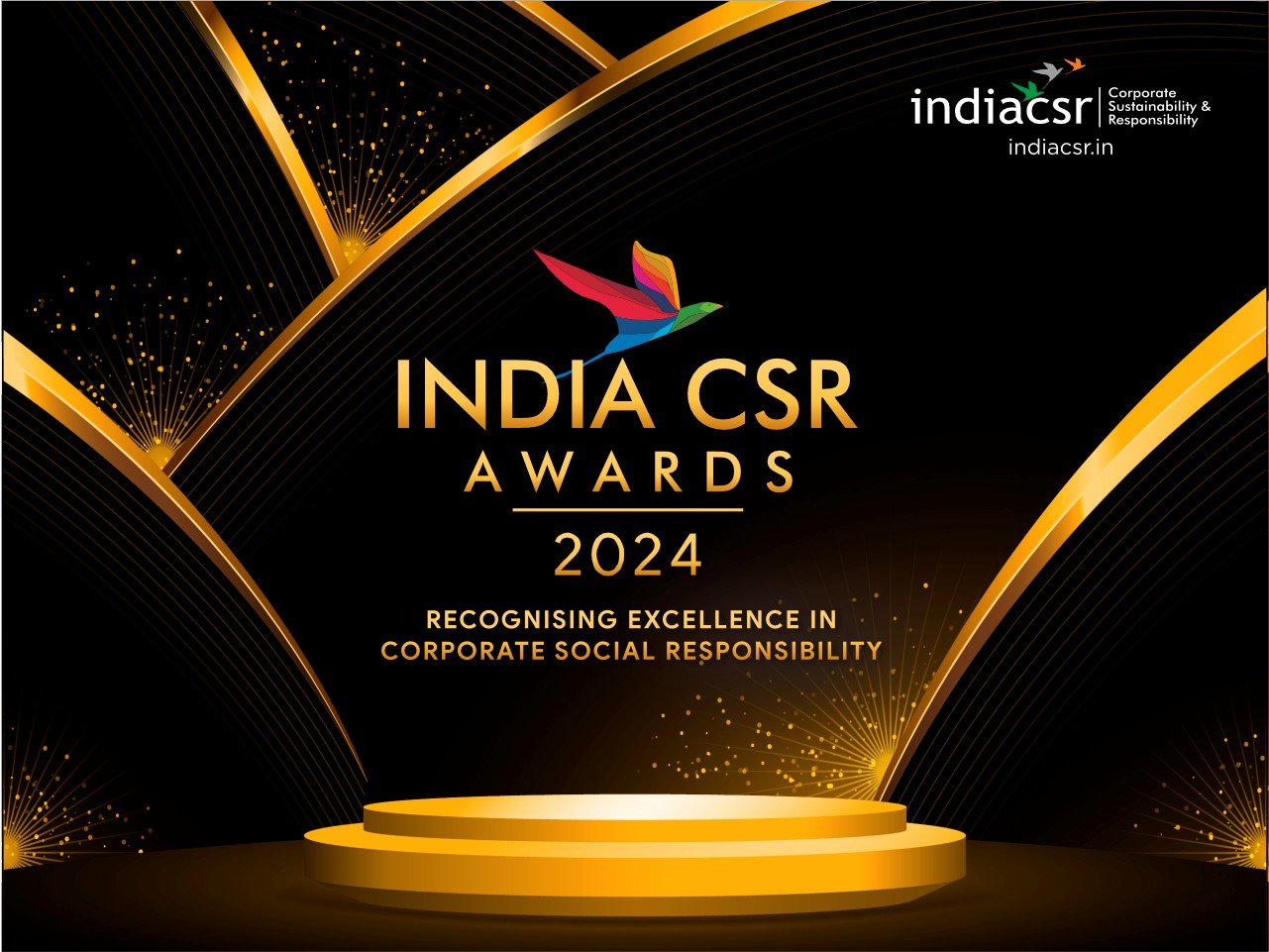By Suresh Kr Pramar,
Awareness that business practices must be sustainable and firms must be good corporate citizens is growing in India. The pace and extent of these changes are posing a serious challenge even for the most seasoned executive. Keeping abreast of global changes in a rapidly changing landscape is essential and firms must continually revise and update their long and short term agenda in order to stay in the game.
Government regulations, peer and community pressure is pushing corporates in India to actively adopt Corporate Social Responsibility and Sustainability practices. There is a growing demand for qualified and experienced staff which can handle the CSR/Sustainability responsibilities with confidence. Unfortunately while demand for CSR qualified, experienced staff is increasing there is an acute shortage of people with such qualifications.
Management schools in India have yet to tailor their curriculum to the growing present day needs of companies. The traditional management programmes offered by BSchools is India continue to pay more than necessary attention to supply chain, marketing and finance. Every class in a business school is about making money. It is being increasingly realized that with the addition of social responsibility to the curriculum the end results would be more meaningful. Business with the focus on sustainability and social responsibility are gaining in strength and importance.
Globally the impact of the recession have forced western universities to revisit their management programmes to bring them closer to the present day needs of companies and society. According to Dezso J Horvath Dean at the Schulich School of Business at York University in Canada businesses are facing increasing expectations and demands on the part of government and the public. More business are dealing with the triple bottom line of social environment and economic issues “Adopting a broad triple bottom line approach is more than just good corporate citizenship-its simply good business management.”
According to several surveys management schools abroad are now aiming to produce more thoughtful and present leaders. Their goals go beyond the here and now; they are looking well into the future at the kinds of managers and business people their schools will be producing. Ultimately they want better for the world, and constant improvement is what they say they need to achieve that.
Sally Blount, dean of Northwestern University’s Kellogg School of Management, says “it is critical for management education to inspire students, the next generation of business leaders, to think deeply, creatively, and boldly about solving the complex, large-scale problems facing our global society. “As educators, this means we must push boundaries in how we approach teaching and research. We must go beyond what has worked in the past to meet the current needs of this dynamic, vibrant planet of seven billion people.” She says business schools must inspire students to think “deeply, creatively, and boldly” about global problems According to Wharton’s dean, Thomas S. Robertson, “The purpose of management education is to prepare the next generation of leaders.
That means we have to focus not just on the needs of our students now, but als on their future needs.” With increased focus on ethical and legal responsibility, oral and written communication, and self-analysis, the school is also going to provide recent graduates with ongoing executive education to encourage lifelong learning. The intent is to make sure the future is bright for individual students and business as a whole.
The global financial crisis has put pressure on business schools to instill a greater sense of responsibility in their graduates. Business leaders must master the ability to recognize the connections between their own actions and those of their organizations and industries in a global context.” Says Glenn Hubbard, dean of Columbia Business School ,“Now more than ever before, they must also take into account the social impact of their decisions. Management education will play a critical role in teaching the next generation of business leaders to ‘connect the dots’ in making informed decisions that encompass both cross-functional expertise and social responsibility.”
There is need for business schools to improve the delivery of core knowledge and skills, to encourage principled leadership, to provide students with access to great minds, and to integrate global and social leadership ideas into their teaching Business schools need to help students think beyond the bottom line and promote the achievement of greater good.
Bill Boulding, dean of Duke University’s Fuqua School of Business, has expressed the hope that “we produce the leaders of consequence the world needs. Business connects us around the world and into fundamental issues we confront globally around health, poverty, economic development, energy security, and environmental sustainability. We need leaders who will see the opportunities to make a difference and accept responsibility for shaping a world that advances from good to better.”
Speaking on the issue of Management Education, Srikant Datar, Professor of Accounting from Harvard University and author of Rethinking the MBA: Business Education at a Crossroads, has said there are two kinds of business school graduates: Those that see business as responsible for dictating change and the others who see business as the cause of all problems in the world. “For business schools this is a real challenge: Should we accept responsibility for fixing this paradigm or do nothing? This then leads to introspection on curriculum.”
According to Rich Leimsider, the director at the Center for Business Education at The Aspen Institute, “If you can change business education to include an appreciation for the social and environmental contexts, you wind up with leaders who are really good at creating value all around.” By educating the students of today, we can create the conscientious leaders of tomorrow.” An MBA that focuses on sustainable living provides the gateway towards a career in corporate social responsibility, business management or as the founder of a green startup.
The students are ahead of the schools in seeing the importance of these issues for their future careers – and for the state of the world in which they hope to bring up families The demand for change in the curriculum offered by BSchools in India is being voiced by students who, in several surveys, have expressed their partial satisfaction with the present courses offered. A survey conducted by Dr (Ms) Ravi Kiran and Anupam Sharma from Thapar University among management institutes in North India, has revealed that a majority of the students surveyed(88 percent) expressed the view that CSR should be part of management education.
Students said that introducing CSR into the curriculum would help future managers in defining priority, integrating social responsibility throughout the company to enhance social and business value. At present a few institutions were offering CSR as part of business environment and corporate governance. Very few Schools were offering a full CSR course.
To fulfill the demand for trained personnel in CSR and Sustainability business needs to enter into a partnership with BSchools to develop new curricula for management education. Writing in the Ethical Corporation David Grayson, Cranfield’s professor of corporate responsibility says Companies that care can help corporate responsibility and sustainability “occupy” business schools in the following ways:
1. Open doors to business schools to research, and write teaching cases about their challenges in embedding corporate responsibility and sustainability and how they are going about this. The world’s largest mobile phone business China Mobile is doing just this.
2. Collaborate with other companies to offer mentoring and privileged research access to bright younger faculty members, wanting to make their academic names with relevant and rigorous research around corporate responsibility and sustainability.
3. Communicate expectations to business school careers services and MBA/MSc course directors that graduate recruits have a good understanding of how to manage ESG (environment, social and governance) factors in the business (both as risk mitigation and opportunity maximisation). All too often, right now, the signals corporate recruiters are sending to business schools are just the opposite.
4. Unite business school alumni in the company who are interested in corporate responsibility and sustainability in becoming activists, pressing their schools to take these issues more seriously – if for no other reason than because not to do so may devalue their own qualifications from that school in the years to come.
5. Plan top talent development and executive learning programmes to achieve sustainability and responsibility learning outcomes. Specify this is part of what companies are commissioning. Again, executive education directors in business schools say this is not the general message now.
6. Yield old ideas to new dialogue. Provide senior leaders from the company to speak on business school campuses, where they can weave in ideas about ESG performance as an integral part of their narratives. But make it clear to the schools: if your CEO or senior executive director is speaking on campus, you expect faculty members as well as students to attend.
(Suresh Kr Pramar,Trainer,Writer, CSR Consultant and the Executive Director, Centre for Training & Research in Responsible Business is a veteran journalist presently actively involved in promoting CSR through his publication CRBiz and by conducting workshop on Corporate Social Responsibility. He can be reached at suresh.pramar@gmail.com, Mobile No: 09213133042/9899305950)






















